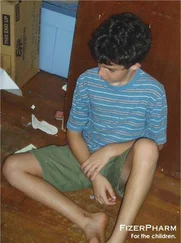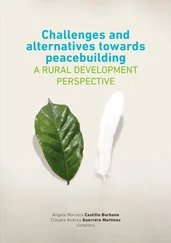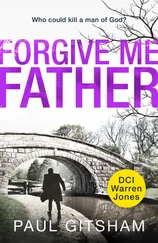Her father had quietly informed the councilor that they could not afford to do that but the woman had looked at him sympathetically over the rims of her glasses and told them they should not worry about the funding, there were scholarships available for individuals in their financial situation and she would be happy to give them the forms to fill out. With their daughter’s test score averages they would have no problem, she was sure. Money would not be a consideration in their daughter’s future education.
Rebecca had not wanted to leave her school and her friends. The other children liked her and, unlike most geniuses of a similar age, she had the social graces to match her intelligence. She had spent many years being brilliant at not showing her peers that she was brilliant. However, even at the age of ten she heard the call of something bigger than herself or the tiny valley that she was growing up in.
Mathematics .
Numbers, figures, formula. She could see them in the flight of the hawks that sometimes circled above her home, in the random fall of gravel that made up the drive to their front door, or the billowing clouds that hung over the mountains surrounding the town.
While other kids watched MTV and read the umpteenth Harry Potter, she was watching Nova on her local PBS channel and reading Sagan and Hawking, devouring anything by Gian-Carlo Rota and Julian Barbour .
She appreciated mathematics as others loved poetry: she could hear the meter in a constant, feel the rhyme in an integer, and sense the prose hidden in quantum foam. It combined to create a stunning sense of wonder in her, a wonder that never diminished.
With the sense of wonder came an awareness of something intangible, of something beyond the mathematics, something outside intelligibility that, just as a molecule consisted of electrons, protons and neutrons, made mathematics something greater; imparting a rhythm and a meaning to the figures and equations that she could not quite understand.
To Rebecca, it was a sense of God.
No formula could express what she was experiencing. Like a woman who lived in a two dimensional world trying to grasp a third new dimension of reality, she did not possess the senses needed to interpret the undercurrent she felt rippling through each and every equation. Its ineffableness at once frustrated, terrified and excited her.
And now, in this reconstituted world, here it was again, the same sense that something was at work behind the scenes of her life, an undercurrent pulling at her mind again, catching it in its tow and sweeping it out into a sea of uncertainty and mystery.
No. She did not believe that this was a miracle at all.
If you didn’t know the path was there, you could easily drive right past it. It was just a narrow dirt track leading through the forest to the cabin on the lake shore. Simone had asked Jim several times to get the path paved. He had steadfastly refused; he liked the fact the place was off the beaten track—quite literally. Instead, he had agreed to spread gravel the last hundred yards or so to the house so they wouldn’t track mud inside after one of the frequent storms the area often experienced.
It took Jim twenty minutes of driving back and forth along the same strip of road before he spotted the track, obscured by a year or more’s growth of Juniper and Sage. As Jim turned off the main road and onto the rough dirt track leading up to the cabin, he finally felt that he was leaving the events of the past year behind him. It was a boundary between the strange new world, and him. A living fence of birch and oak separating him from harsh reality.
Jim pulled the truck to a stop outside the cabin. It was a quaint colonial-style affair, built completely with local trees sometime in the early twentieth-century. Surrounded by thick woods on all sides save for the lake, Jim and Simone had bought the place within a year of getting married—escaping to its tranquility every chance they could. It sat on the shore of Shadow Lake, a 700-hundred acre natural body of water. As he exited the truck he could hear water lapping at the supports of the old wooden dock outback, and see their paddleboat bobbing languidly on the waters ebb and flow, just as it always had.
Of course, Simone was not with him this time. Jim had come to terms with the fact that both his former wife and Lark were, in all probability, dead. Killed in the first few chaotic days following the Slip —as the event had eventually become known. She and Lark were undoubtedly one of the estimated seven-million American’s who had lost their lives in the U.S. on that fateful day. Hundreds of millions more worldwide had been killed across the globe, and millions more perished in the weeks following the event, mostly in undeveloped countries as their fragile governments and infrastructures collapsed around them.
Jim half-expected the cabin to be occupied; claimed by one of the many displaced families that the Slip had created in its wake. But as he walked up the weatherworn steps onto the front porch, he found the door still locked. And peering through the grubby window, he could see the place was empty, and just as he remembered it.
After Lark’s death, the subsequent separation and eventual divorce from her mother, the cabin had become Jim’s hide-away. In that first life, it had also been his bar and his confessional. But mostly, Jim liked to think of it as his pupae; the place where he had entered as a broken, disheartened, self-hating child-killer, and emerged as an almost-whole human, and critically acknowledged novelist.
Right now, it was just somewhere to start over.
Safe. Secluded. Quiet.
He had stayed with Simone’s parents for the first few weeks following the Slip ; it seemed like the sensible thing to do, until some kind of normalcy returned to the world. But eventually he had moved back to the house on Keswick Street, in the hope that Simone would show up. Their house had survived the fire mostly intact, so he spent his days repairing the damage where he could, waiting and hoping for the day his wife and child would show up at the door.
As the days had turned into weeks with no word from Simone, and the repairs on the house were slowly completed, Jim had volunteered for clean-up duty. By this time, he had pretty much come to terms with the fact that they were probably dead, so he volunteered in the hope he might uncover some clue to Simone and Lark’s fate.
It took eight months to clear the freeways and streets of Los Angeles; to remove the bodies from the cars and trucks and bury them in mass graves. With each body he had pulled from the burned out shell of a vehicle, he wondered if it was maybe Simone or his daughter.
It fell to the operators of the mobile cranes and heavy-lifters to clear the tin-can-corpses of the hundreds of thousands of vehicles from the roads and freeways. The work had been soul destroying, painful, heartbreaking and horrible. But it was also a test of fire for Jim; a bridge from the old reality to the new, and Jim had made his way through it, coming out the other side more complete than when he had entered. The same couldn’t be said for many other survivors. Suicide rates in the first few months had grown to such massive levels that authorities had finally stopped counting. The media, in a rare show of clear-headedness in Jim’s opinion, had stopped reporting on it.
The cabin’s creosote stained logs looked welcoming and familiar after all the disquiet and horror he had experienced in those times. With the smell of sap and dry leaves redolent in the air, Jim pushed the key into the lock and opened the front door.
He stepped over the threshold to the accompanying Brak-rak-rak of a woodpecker somewhere deep in the surrounding forest.
Читать дальше












